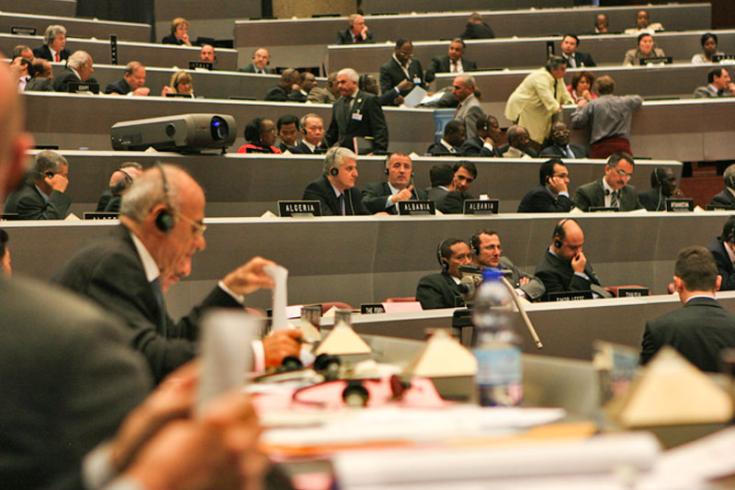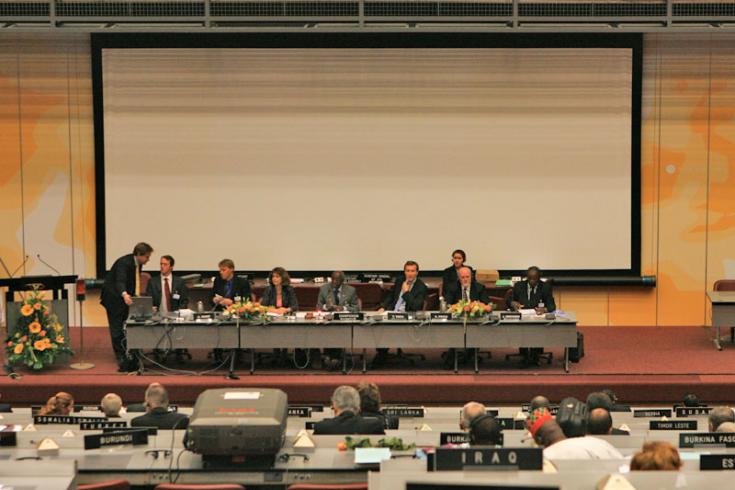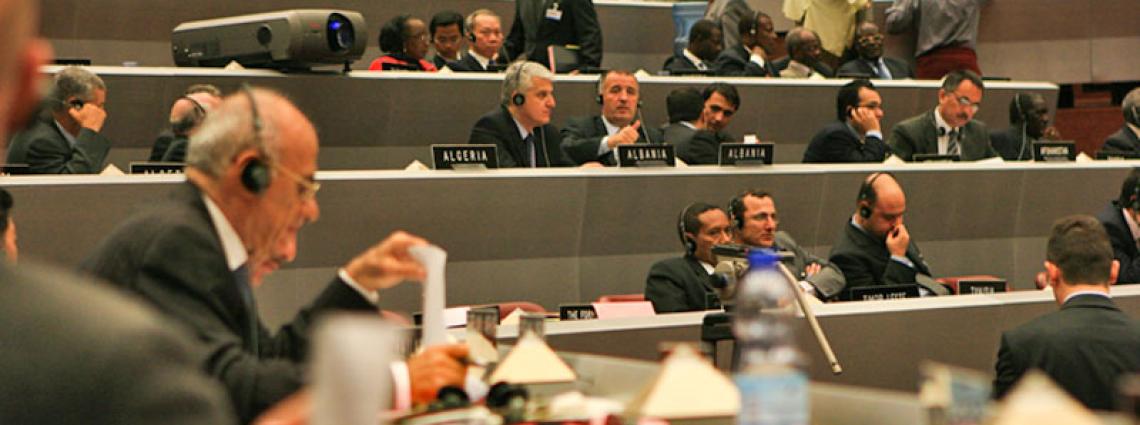CTBT in spotlight at Inter Parliamentary
Union Assembly panel discussion
Union Assembly panel discussion
Geneva, 14 October 2008

119th session of the Inter-Parliamentary Union (IPU) Assembly in Geneva, October 2008.

The four panelists: Roger Price, J.J. Mwiimbi, Alyn Ware, and Tibor Tóth.
"A critical step that States could take in advancing the objective of global security is to facilitate the entry into force of the CTBT...(and) this is an immediate disarmament priority for Australia as it should be for all States."
Role of Parliament on Entry into Force of the Treaty
"Particularly important that the CTBT is a non-discriminatory instrument: the ban on testing is the same for everyone, nuclear weapon State and non-nuclear weapon State alike."
Support from Delegations for the CTBT
Other Views
IPU CTBT resolution in 2009
17 Oct 2008
